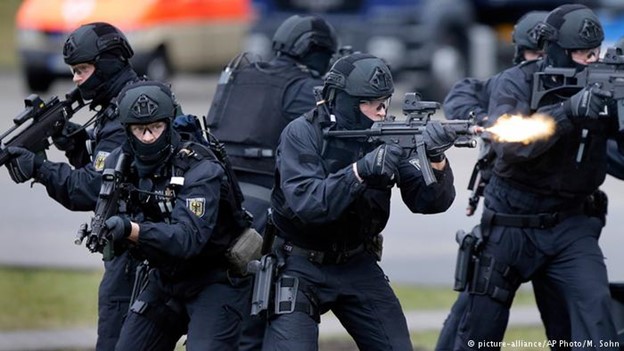
The Threat of Terrorism Today: Why Antiterrorism Efforts are Critical
In today’s interconnected world, the threat of terrorism looms large, posing a significant challenge to global security. The rise of terrorist organizations and the proliferation of extremist ideologies have led to an increased need for robust antiterrorism efforts. This article explores the pressing nature of the terrorism threat and emphasizes why countering terrorism remains a critical imperative.
Terrorism, as a form of asymmetric warfare, is characterized by acts of violence and intimidation perpetrated by non-state actors. These actors, often driven by extremist ideologies, seek to create fear and chaos in society. Over the years, terrorist organizations like al-Qaeda, ISIS, Boko Haram, and many others have demonstrated their capacity to carry out devastating attacks on innocent civilians, governments, and critical infrastructure. These acts not only claim lives but also undermine the foundations of peace, stability, and progress.
The global security landscape has been profoundly impacted by terrorism. No region is immune from its reach, as attacks have occurred in various corners of the world. The threat of terrorism extends beyond national borders, making it a truly transnational challenge. Terrorist organizations exploit the interconnectedness of today’s world, utilizing modern communication technologies and social media platforms to spread their propaganda, recruit new members, and coordinate attacks. This interconnectedness also enables the movement of funds, weapons, and individuals across borders, making it imperative for countries to work together to counter this threat.
The spread of extremist ideologies is a key driver behind the rise of terrorism. These ideologies manipulate grievances, exploit religious or ethnic divisions, and promote a narrative of hatred and violence. The internet and social media have played a significant role in amplifying extremist messages and facilitating their dissemination. Countering these ideologies requires a multifaceted approach that includes promoting inclusive societies, addressing socio-economic inequalities, and investing in education and the empowerment of marginalized communities. It is essential to challenge the narrative of hate and intolerance with messages of peace, tolerance, and respect for diversity.
Given the gravity of the terrorism threat, antiterrorism efforts have become increasingly critical. Governments around the world have implemented various measures to combat terrorism, including intelligence sharing, law enforcement cooperation, border security enhancements, and the enactment of legislation to criminalize terrorist activities. International collaboration through organizations such as the United Nations and INTERPOL plays a crucial role in coordinating and supporting these efforts.
Preventing terrorism requires a comprehensive approach that encompasses not only security measures but also addressing root causes. Effective antiterrorism strategies involve a combination of intelligence gathering, law enforcement actions, border controls, and counter-radicalization programs. Investing in intelligence capabilities to identify and disrupt terrorist plots before they are carried out is essential. Additionally, cooperation between security agencies at the national and international levels is paramount to share information and apprehend individuals involved in terrorist activities.
It is crucial to recognize that antiterrorism efforts must be carried out within the framework of respect for human rights and the rule of law. Overreaching security measures or the erosion of civil liberties in the name of counterterrorism can undermine the very values we seek to protect. Striking the right balance between security and individual freedoms is a delicate task that requires thoughtful consideration.
In conclusion, the threat of terrorism remains a significant challenge to global security. The rise of terrorist organizations and the spread of extremist ideologies necessitate robust and comprehensive antiterrorism efforts. Governments, international organizations, and civil society must work together to counter this threat through intelligence sharing, law enforcement cooperation, counter-radicalization programs, and addressing root causes. By doing so, we can protect our societies, safeguard human rights, and ensure a more peaceful and secure world for future generations.